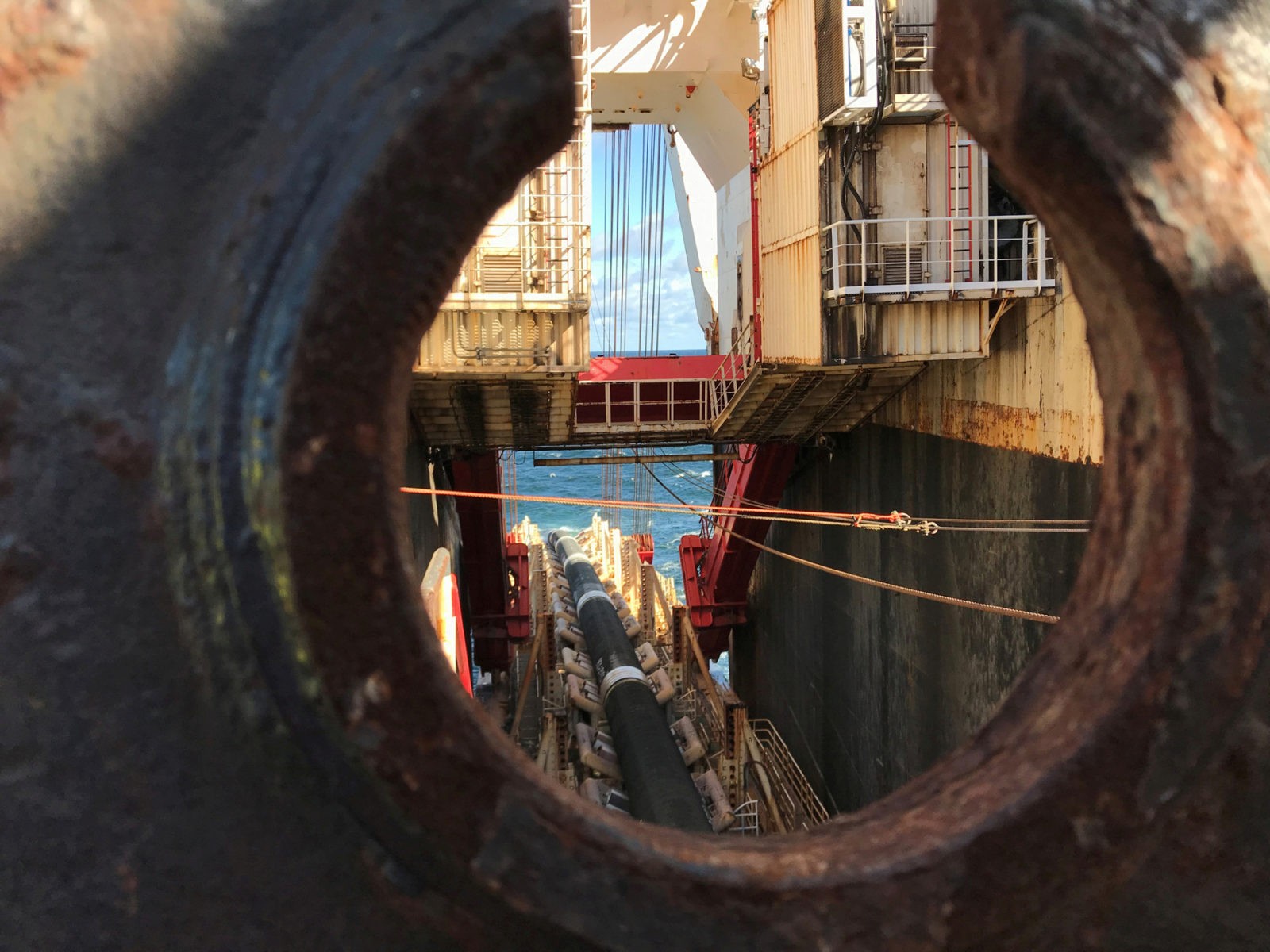On August 2, 2017, Donald Trump signed the Countering America’s Adversaries Through Sanctions Act (CAATSA). The act identified Iran, Russia, the DPRK, and terrorist organizations as adversaries. And as this law’s name spells out, it was pretty clear right away how these adversaries would be countered. Not through war, bombing or regime change — but sanctions as the main policy tool.
At the time of CAATSA’s enactment, the American establishment was at a peak of anti-Russian sentiment. On foreign policy issues, the left-liberal media and supporters of the Democratic Party focused on discussing Russia’s alleged interference in the US election in 2016. This spurred more and more Congressional bills geared toward economic sanctions against Russia.
In 2019 alone, we counted eight projects pushing for the imposition of sanctions and restrictions against Russian legal entities and individuals. One of the projects — Protecting Europe’s Energy Security Act (PEESA) — affected the builders and contractors of Nord Stream 2, an infrastructure project to lay a gas pipeline across the Baltic Sea from the Leningrad Region of Russia to Germany, bypassing Poland and Ukraine.
Why, however, did PEESA not become then a law? And why was it necessary to hurry to fold in the sanctions PEESA conceived via another law, the National Defense Authorization Act (NDAA)? To answer these two questions, it is worth recalling the very different context when this all came to a head in the US Senate in May 2019.
By that time, the American establishment had already received an answer from the commission of special prosecutor Robert Mueller. Mueller had been investigating if Donald Trump had colluded with the government of Vladimir Putin. The answer was no. A positive response would have ratcheted Russia up into a major geopolitical adversary. A wave of indignation in American society would have allowed both houses to pass many of the sanctions laws, including the «sanctions from hell» (DASKA) and «Red Lines Act» (DETER). But in April, when the Prosecutor General ordered the unclassified part of the report to be published, it became clear that there was no longer much appetite for most of those sanctions.
In this context, the author of the PEESA, Ted Cruz (a Republican US Senator from Texas), introducing the sanction law to the Senate under the number S.1441, decided to strike at Russia’s foreign economic interests. The logic of reacting to the «malicious actions of Russia» required a proportionate, tough response. Therefore, the sanctions envisaged by the project were trying to hit a sore spot — Gazprom’s large foreign economic infrastructure project, on which the Russian budget depends.
At the same time, the leader of the Republican majority in the Senate Mitch McConnell proved a sanctions skeptic. None of the sanctions bills introduced this year in the Senate have advanced beyond this stage. Meanwhile, the trade war with China was gaining momentum by the summer; the American elite had to switch focus.
By year end, it became clear that the sanctions projects would not go through. At that moment, the provisions from PEESA were moved to chapter LXXV of the National Defense Authorization Act for 2020 (NDAA). Donald Trump signed the NDAA on December 21, 2019.
Europe’s response and the future of Nord Stream 2
What are the goals of US lawmakers with extraterritorial sanctions? Unfortunately, NDAA article 7502 provides a meager answer to this question. Relations with the EU and Germany are crucial for the interests of US national security, for international peace and global development. So, the United States will oppose any attempt to weaken this relationship. Since Germany is the main initiator of sanctions against the «malicious activity of Russia,» the United States wants to contribute to it, including through the introduction of sanctions under the NDAA.
There is a classic set of restrictions for the sanctioned: individuals will not be allowed to enter the United States; an entry visa will not be issued, or one will be revoked if issued earlier; assets and property in the United States or in the possession of subjects of US law will be frozen (this provision also applies to legal entities).
According to the provisions of the law, 60 days after the NDAA enters into force, the State Department and the Ministry of Finance must provide special committees of the Congress with a report on the companies, courts and other persons involved in the construction of the Nord Stream-2 and Turkish Stream. Later reports must be submitted every 90 days. One of the main recipients of the sanctions, the Swiss pipe-laying company Allseas Group SA, apparently, was already scared of landing on this list: the company recently announced the termination of pipe-laying work. In the modern global financial and economic paradigm, it is impossible to conduct international business and at the same time have a «black mark» from America, the world’s leading economy. So the German government, much as it tries, will not be able to stop the flight of contractors, even German ones. Nobody wants their company caught in the crosshairs, and Germany and the EU have not yet come up with a proper mechanism for rescuing their residents from extraterritorially applied US sanctions. The famous blocking statute — EU Regulation 2271/96 — will not help here. Russia does not have such contractors; it is unlikely that it will be possible to create a joint venture with a Western pipe-laying company. Both in the east and in the west, businesses are well aware of the risks of falling under US sanctions.
What comes next?
Instead of Allseas, a certain «victim» may be chosen that will complete the gas pipeline in Danish waters. In addition, the President of the United States has the right not to impose sanctions on the company or ship specified in the report to Congress.
This law will stay in force until the US president informs the congressional committees about the creation of a series of guarantees. First, the ability of the Russian leadership to use the project as an instrument of coercion and political pressure should be minimized. That is a matter of ensuring the separation of energy production and transmission so that companies directly or indirectly owned by the Russian authorities do not control pipeline transportation. Secondly, the president must convince Congress that the project does not lead to a reduction in the transportation of Russian energy by more than 25% of the volume pumped through the networks of other countries in 2018 (most of all, we are talking about Ukraine).
On a global scale, all this means sanctions are not just the economic means of resolving disputes; they offer a side carriage serving raw geopolitical interests as well.










